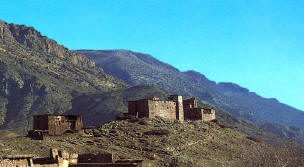|
||||||
|
Culture
The language
Apart from classical Arabic, the language of education, the Civil Service and the media, the everyday language in Morocco is a dialectal Arabic, as well as Tamazight (Berber) spoken in the Rif, the Atlas ~nd the Souss and which varies according to region. Most Moroccans speak French and many speak Spanish and English. |
|
|
WAY OF LIFE
A respect of local customs is a fundamclltal act of courtesy in a welcoming country. To avoid embarrassing situations and III I $- understandings, comply with common practise. Here are a few essential rules to follow: In Morocco, access to mosques and holy places is forbidden to non Muslims. A few exceptions are the Hassan II Mosque in Casablanca, the Mohammed V Mausoleum in Rabat, the Moulay Ismail mausoleum at Meknes and the Moulay Ali Cherif Mausoleum at Rissanl.
A void provocative clotohing. Accept mint tea when offered, a sign of hospitality. If you are invited to share in a family meal, you should symbolically use the ewer to wash your hands. The meal begins after the master of the house has said the "bismillah" in praise of God. Use your right hand to eat, taste everything, but don't think you have to finish everything in your plate, which is usually impossible! Avoid drinking, eating and smoking in public in daytime during the period of Ramadan. If you want to photograph somebody, don't forget to ask for permission.
Cuisine
Moroccan cuisine is punctuated by a delicate use of aromatic spices and features fruits and vegetables as well as fish and meats. Some of the best-known dishes include: Couscous, a fine grain served with meat and vegetables; Mechoui, lamb roasted on a spit; Pastilla, a flaky pastry typically stuffed with pigeon and almonds; and Tajine, a stew cooked in a distinctive earthenware dish that is also known as a tajine. Moroccan pastries are often prepared with honey, almond, raisins, or sesame. The national drink is mint tea, which is often offered to guests and potential buyers. The larger hotels and restaurants serve wine and liquors, and the local Moroccan rosť is a surprising pleasure, even for those who fancy very dry wines. |
|

